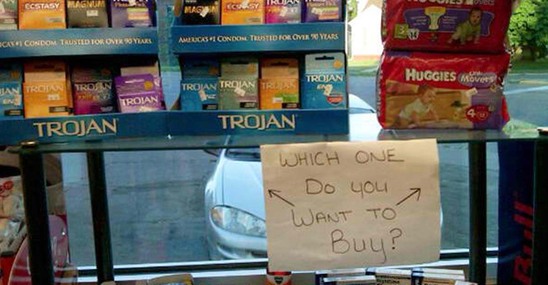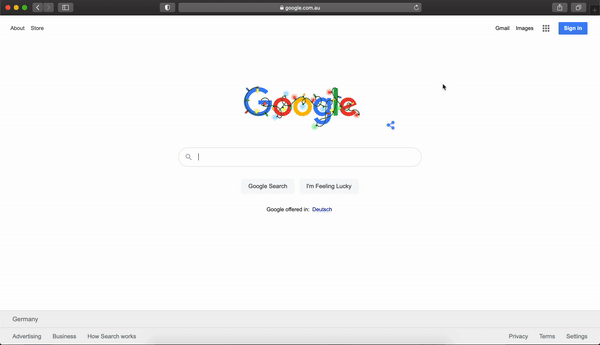What Can A Small Business Do Today To Improve Their SEO & Get Ranked #1 On Google?
The age-old question for business owners new to the digital space is "How do I get my business #1 on Google?".
This is a very simple question to ask, but a slightly more challenging thing to do.
Listen to the Marketing Talks Podcast:
Being a business owner and entrepreneur is challenging in and of itself. There are so many facets you need to think about to get your business up and running and generating sales. Anyone can buy a domain from CrazyDomains and build a shiny website, but if no one sees it then does it even exist?
As part of the Marketing Talks video series and podcast, I recently caught up with Greg Tresler who is the founder of SEO and Social Media Agency, Digital Marketing Evolutions. I wanted to pick his brain with a few questions that small business owners might want to know the answers to.
Before you jump in, if you're unsure what SEO is, I'd recommend briefly checking out 'What Is The Difference Between SEO & SEM?' which will bring you up to speed quickly.
How is a small business able to compete against bigger businesses when it comes to SEO?
The large businesses in your niche will own certain keywords in terms of having the highest authority to search engines when it comes to content related to that keyword (e.g. Insurance, or Real Estate are highly competitive keywords).
The businesses that don't own those keywords are going to pay for ads. You can compete against the big guns in your industry, but it will cost you a lot of money and a lot of time to reach the goal.
While you may never be able to beat the bigger competitors in your niche, what you need to do instead is find other ways to leverage their market to attract traffic to your site. Consider the concept of Guerrilla Marketing.
Guerrilla marketing is an advertisement strategy in which a company uses surprise and/or unconventional interactions in order to promote a product or service (Wikipedia).

A small-scale local example of Guerrilla Marketing in action.
In the context of local SEO, Guerrilla Marketing is about marketing against the big competitors with a limited budget. This means going after keywords that drive traffic but aren't owned by the competitors.
For example, if you are in the Real Estate niche, you'll find keywords such as "London real estate" are owned by companies like Rightmove, Zoopla, etc, so to compete in Local SEO, you can try to rank for keywords like "Local real estate in Shoreditch" or "4 bedroom homes for sale in Crouch End".
This approach will bring traffic to your site in a faster manner. Then, in your long game, you can work on ways to rank on the more competitive keywords.
What things can a small business do today to improve their SEO and get ranked #1 on Google?
#1 Keyword Research
Start by finding the keywords you should be ranking on Google for. For example: go to Google and type in what you would search for to find your business. As you type, notice how the Search Bar dynamically shows suggested search queries. At a basic level, these suggestions tell you what your potential customers are also searching for the most. These can become your target keywords and these are what you should be using to get on page #1 of Google. For example, if you are a Dentist who provides braces as one of your service offerings, think about what do people search for on Google when it comes to braces? If you don't have those terms on your website then Google can't help you get seen.

#2 Tools
Use tools like Uber Suggest to help you see what keywords your site currently ranks for, how many links are pointing traffic to your site (i.e. backlinks), and how much organic traffic is coming to your site. Ensuring your site is connected to Google Analytics is also a must for future tracking of traffic sources and measuring the success of campaigns.
#3 Google My Business
Set up a Google My Business page and get listed on Google Maps, then optimise both in terms of relevant keywords related to your business, collecting customer reviews, ensuring your listings are up-to-date, and more.
#4 Geotag Your Photos
Geotag your photos so any photos you upload have a data reference to your local area. This will help your photos rank higher on Google and help bring traffic through the image search service.
#5 Get Support When Needed
Hire people that like to play with the things you consider work. Your time as an entrepreneur is valuable, but how valuable? Figure out what your time is worth and assign a dollar value to that amount. Focus on the things that you love, and if SEO is not one of those things, then find someone (even consider a freelancer on Fiverr.com) to help you with that.
#6 Find The Right Help
Hire a good SEO marketing agency that understands and specialises in your niche. Before jumping straight in with the first agency you see, take some time to engage with a few. Most agencies will provide you with a free consultation and SEO assessment that will indicate key areas for improvement.
Use these recommendations to:
a) prioritise your internal SEO activities, and
b) get a feel for what agency best meets the needs of your business.
This is also a great method to take if you don't have any budget or expertise to hire an agency because you'll effectively be getting a free introductory service.

